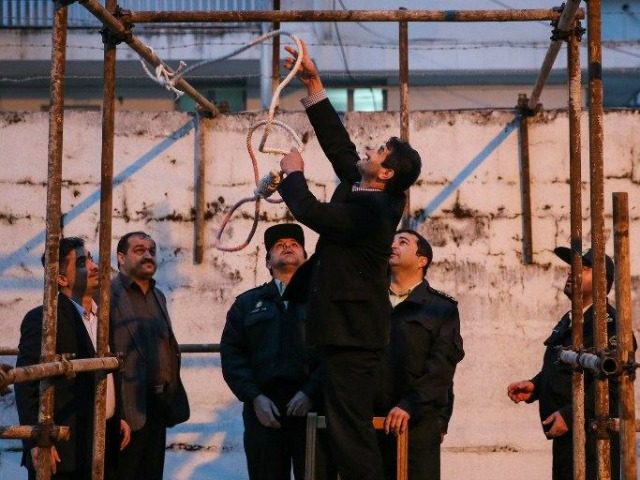There is a shared policy of state-sanctioned killings behind the stark religious divisions between Sunni Saudi Arabia and Shiite Iran, the region’s greatest rivals.
Statistics recently released by human rights groups reveal that the Muslim nations executed nearly 360 in the first six months of 2016.
Middle East Eye (MEE) finds:
Iran is second globally only to China in executing their own citizens, and is far ahead of Saudi Arabia which occupies third place.
Iran executed at least 250 people in the first six months of the year, according to a report released on Tuesday by the Norway-based group Iran Human Rights [IHR].
In the same period Saudi Arabia executed 108 people, according to a report released on Wednesday by Human Rights Watch [HRW].
About half of all executions in Iran reportedly involved individuals facing drug-related charges, while nearly four out of every 10 received death sentences for murder.
The executions in Iran so far this year represent “an average of more than one execution each day,” reports IHR.
MEE points out:
Amnesty International raised concerns earlier this year about juveniles being executed in the Islamic Republic – girls as young as nine and boys aged 15 can be executed in the country.
The UN reported in January that at least 160 juveniles were on death row at the start of the year — it is not known if any of the juveniles are among the 250 reported executions so far in 2016.
Iran Human Rights reveals that 19 Iranians have been hung in public places this year.
“Iranian authorities continue their practice of executing people in public places in front of ordinary citizens, including children,” adds the Non-Governmental Organization (NGO). “There are also several possible minor offenders among those executed so far in 2016; IHR is investigating further into these cases.”
Meanwhile, HRW reports:
The year began with a mass execution on January 2, of 47 men convicted of terrorism-related crimes.
Since then, authorities have executed 13 people for nonviolent drug smuggling, 47 for murder, and one for rape. Saudi authorities are on track to match the 158 executions in 2015, and have already surpassed the 88 in 2014.
Homosexuality is punished by death in both countries in accordance with sharia (strict Islamic laws).
However, the NGOs did not highlight any deaths linked to homosexuality.
Iran has a much larger population (an estimated 80 million) than Saudi Arabia (an estimated 30 million).
However, MEE notes that the Shiite nation’s “per capita rate of state-sanctioned killings is slightly lower than their regional rival”.
The news outlet reports:
The number of people killed in Iran has also fallen dramatically, year on year.
In the first seven months of 2015 Iran executed more than 700 people, and by the end of the year at least 969 were killed — the highest toll in more than 25 years.
MEE learned from Mahmood Amiry-Moghaddam, a spokesman for Iran Human Rights, that the reduction was not a result of a change in policy.
“The numbers are lower than last year most probably because of the parliamentary elections in February and March and Ramadan in June,” he said, adding that the international community should “put the death penalty … on top of their agenda in bilateral talks with the Iranian authorities.”
In a statement, Sarah Leah Whitson, Middle East director at Human Rights Watch, said:
Executions are never the answer to stopping crime, especially when they result from a flawed justice system that ignores torture allegations.
There is simply no excuse for Saudi Arabia’s frequent use of the death penalty for non-violent drug crimes.

COMMENTS
Please let us know if you're having issues with commenting.